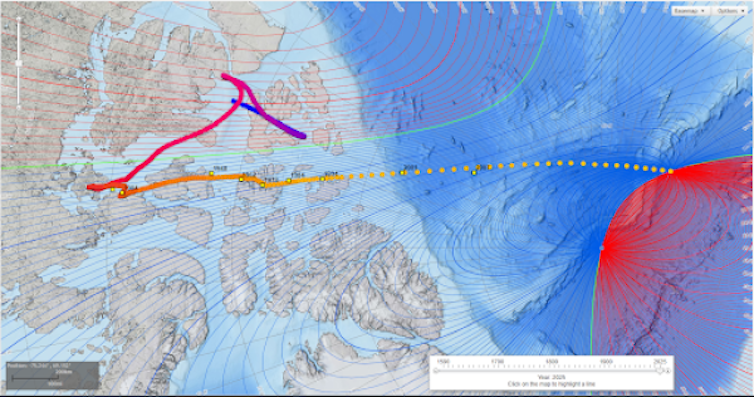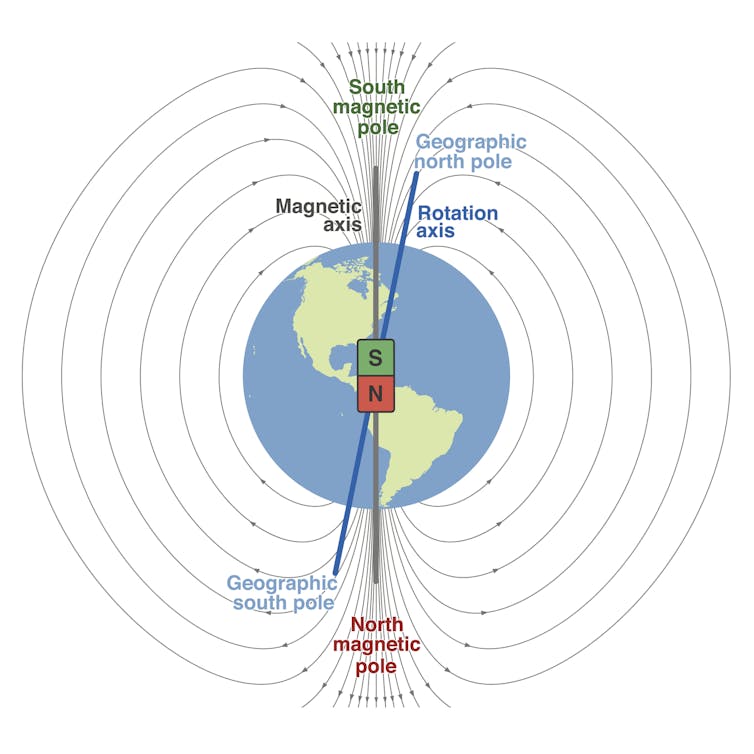Stacked on a platform, the clay sculptures looked like dungeons waiting to be sent to the bottom of the sea. Ochre in hue with ribbed surfaces, they were soft to the touch and weighed 7 kilograms. They have been carefully designed to collect coral larvae carried by ocean currents. When encrusted, these tiny animals can develop the hard skeletons that eventually form a natural reef.
Although coral reefs make up just a modest portion of the seabed, 25 percent of underwater life depends on these fragile structures. Their benefits are manifold: Reefs serve as a refuge, a breeding ground and a source of food for fish, and protect coastlines from erosion.
 Clay bricks, designed by Rrreefs, that are intended to form artifical coral reefs. The organisation tested its new-generation bricks in Lake Geneva on September 10, 2023. © Pauline Grand d'Esnon
Clay bricks, designed by Rrreefs, that are intended to form artifical coral reefs. The organisation tested its new-generation bricks in Lake Geneva on September 10, 2023. © Pauline Grand d'Esnon
Maintaining corals’ resistance to global warming
Mountains of coral – jewels of the natural world – are disintegrating due to overfishing, water pollution and marine heatwaves. Half of them have died over the past 40 years.
"When stressed, corals expel the symbiotic algae that feeds them and starve to death," explained Rrrefs co-founder Marie Griesmar, sporting a T-shirt emblazoned with a fish.
She stretched out a hand to her co-founder Hanna Kuhfuss, hampered by her wetsuit, to lift her out of the water.
Rrreefs does not claim to stop the coral disintegrating but it is on a mission to offer shelter to surviving larvae and give coral reefs a second chance to grow and take in other living organisms.
"I'm an estate agent for special animals," Griesmar said with a smile.
“What I like about our project is that it uses a passive restoration method,” explained Kuhfuss, a marine biologist by training. “Other coral preservation systems use cloning, but if one of the organisms is sick, it affects them all. Our technique lets nature take its course, encouraging the development of the offspring of corals best adapted to global warming. By relying on natural reproduction, we can maintain their resistance.”
Four complementary talents
Rrreefs draws on the talents of four different people. The idea for the project was first sparked at Swiss technology institute ETH Zurich, where Griesmar, an art student, was thinking about how she could connect her passions for art and diving. She crossed paths with Ulrike Pfreundt, a scientist specialising in the preservation of tropical ecosystems, who was doing her final-year project on the effects of currents on artificial structures.
They began to talk about their plans/dreams for ocean preservation. They were then joined by Josephine Graf, who helped Pfreundt to develop the organisation and find customers. Marine biologist Kuhfuss was the fourth person to join the group. Rrreefs was founded in late 2020.
Rrreefs’ first attempts were encouragingly successful. Their first trial, launched in the Maldives with 100 clay bricks of various shapes, began to prosper. "These larvae settle in, and the moment they do, this system attracts a whole community: spores, fish," said Kuhfuss. "And a balanced ecosystem develops, where the sea urchins eat the algae, and so on. In three months, we had almost as many fish as a natural reef!"
 The prototype designed by Rrreefs, here photographed after its installation in October 2022, is already occupied by corals and marine life. © Aldahir Cervantes
The prototype designed by Rrreefs, here photographed after its installation in October 2022, is already occupied by corals and marine life. © Aldahir Cervantes
With crowdfunding, Rrreefs then launched its first complete prototype, made up of 228 bricks, in partnership with local scientists in Colombia. "The teams on site call it El Castillo! (the castle)" said Griesmar proudly.
The goal of Sunday’s operation near Geneva was not to attract corals, which live quite far from Swiss lakes. Rather, it was to test their new products in real-life conditions: new-generation bricks that are larger and heavier, with a view to a new installation in the Philippines that just received the green light.
Nothing was left to chance in the bricks’ design: their porousness, shape and colour are the result of three years of testing. "We chose a natural colour that resembles red-violet algae. It’s the visual indicator of a healthy substrate," explained Griesmar. The bricks fit together thanks to a protrusion on each side, similar to a small chimney. Like a children’s game, all you have to do is put them together.
‘To make an impact, you need money’
In the lake, things were heating up. Part of the team planted anchors at the bottom to install platforms that will house the reefs. On the surface, volunteers lowered brick after brick into the water by rope. At a depth of just a few meters, a diver picked them up, placed them on a platform and took them to the reef assembly site.
However, real-life testing has its share of surprises. "We can't see anything down there, we got lost! It took us twenty minutes to find the others," said Mauro Bischoff, the latest addition to the permanent Rrreefs team, as he removes his diving mask.
The activity in the lake – divers hammering the bottom to install the anchors, and bathers higher up – clouded visibility underwater. It’s time for Plan B: the team unrolls a long red cord from the platform to the marker buoy, so that divers can spot each other from the bottom. "There are always things we don't plan," jokes Griesmar. "We have to be creative!"
The team, whose average age is barely 30, is comprised mostly of Swiss nationals who converse in English, German or French. Leaning over a black waterproof notebook with sketches that accompany them underwater, Griesmar and Bischoff examine a miniature version of their marine castle.
Bischoff, who has a tribal neck tattoo under his mullet and a twinkle in his eye, is also an art student. He met Griesmar at ETH Zurich, and devoted his final-year project to designing an improved version of the Rrreefs structures. Around them, a handful of volunteers supported the small team, transporting bricks, filming the work and solving problems.
Busy with full-scale tests, appeals for donations, winning prizes and recruiting customers, Rrreefs is at a crossroads and preparing to become a company. It is the only way, according to its founders, to generate the money needed for its expansive ambitions.
"We're going to retain the organisation to do research, but to have an impact, you need money," said Griesmar. The co-founders, who make collegial decisions about all the developments of their projects, envisage partnerships with hotel chains. "It would be great to raise awareness among tourists (and) show them this project," she explained.
A Belgian couple stopped to admire the miniature reef. Griesmar paused her preparations to talk about Rrreefs once more. "This project isn't just about doing a good deed. It comes from the heart," she said.
This article has been translated from the original in French.




 The prototype designed by Rrreefs, here photographed after its installation in October 2022, is already occupied by corals and marine life. © Aldahir Cervantes
The prototype designed by Rrreefs, here photographed after its installation in October 2022, is already occupied by corals and marine life. © Aldahir Cervantes




